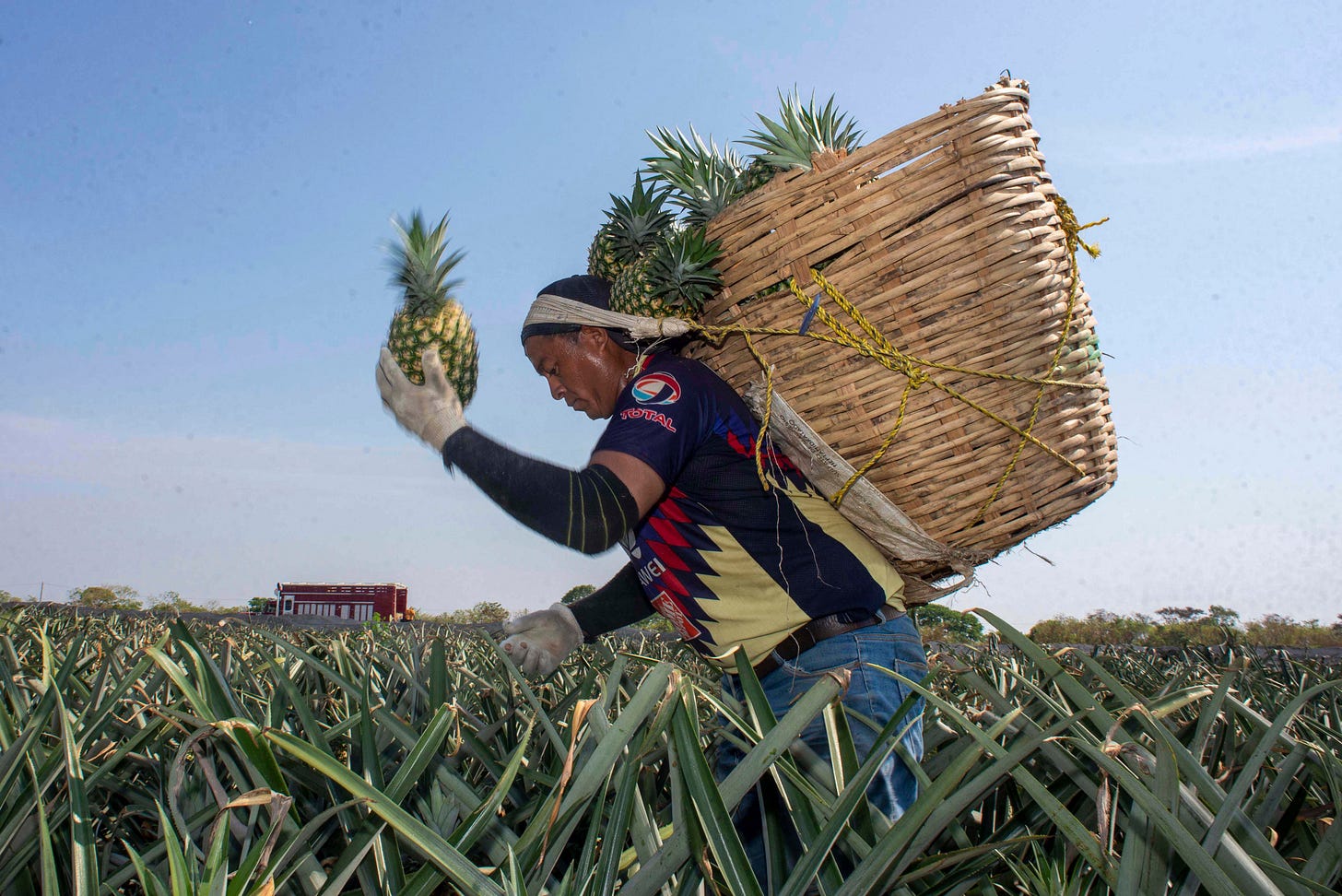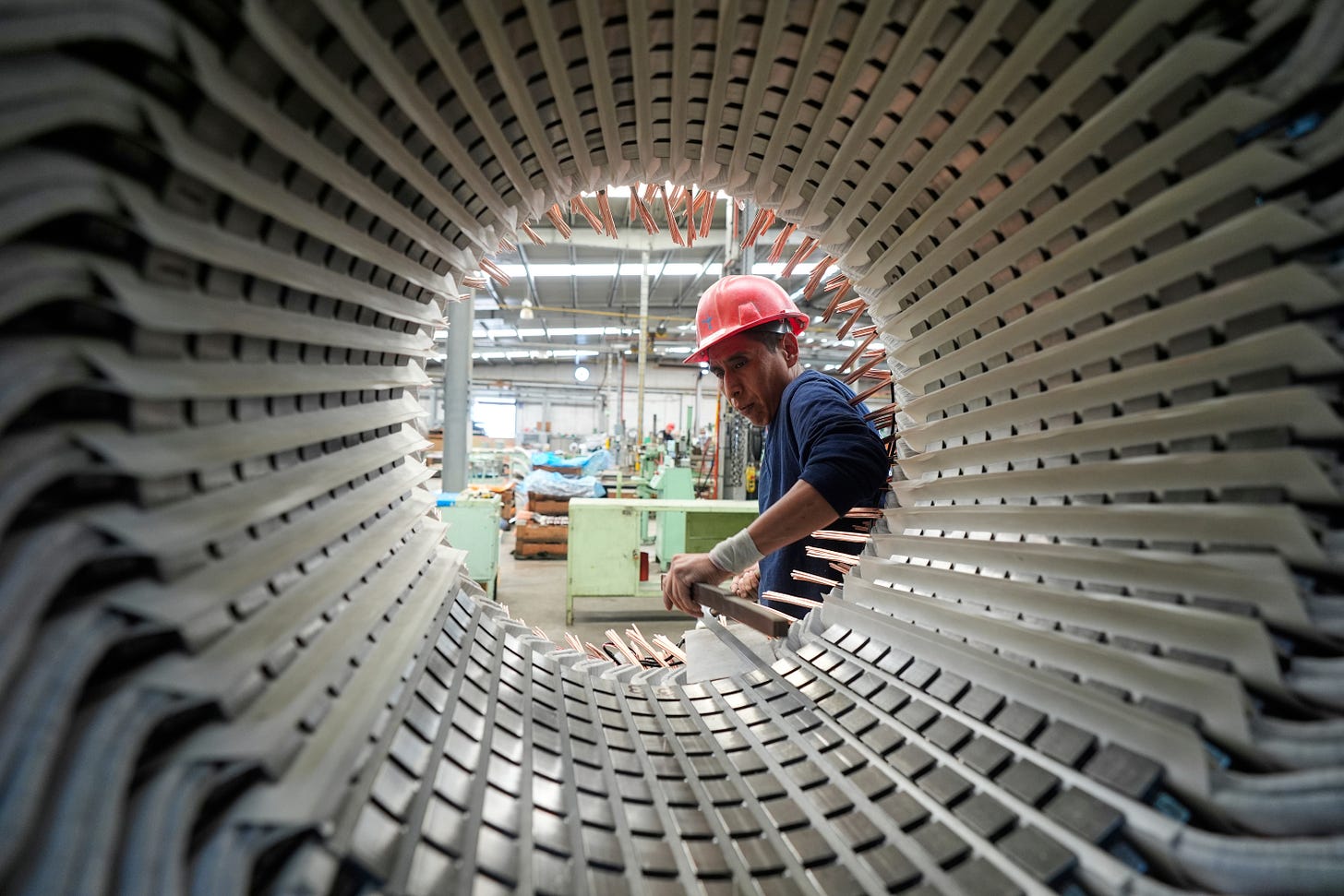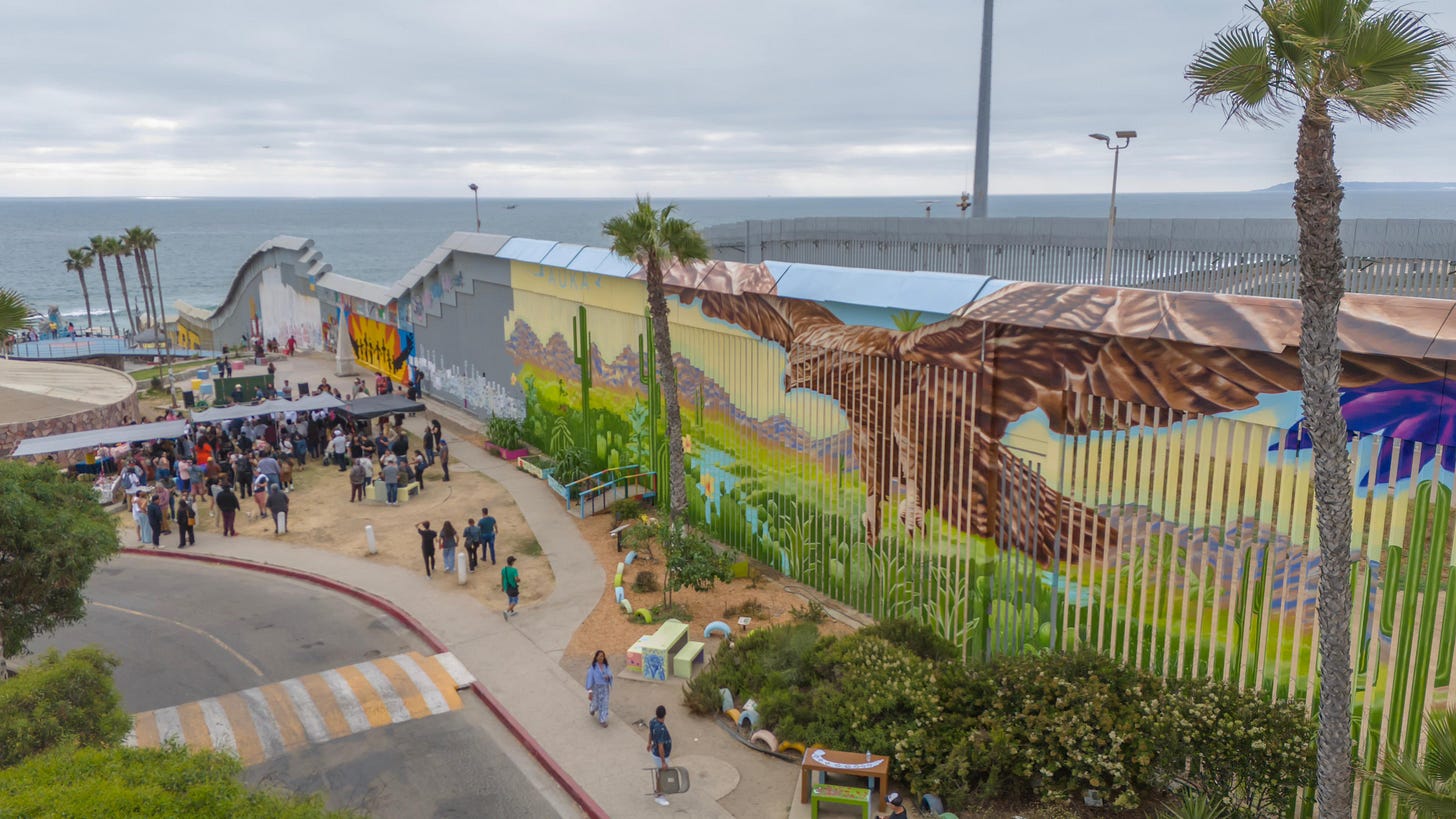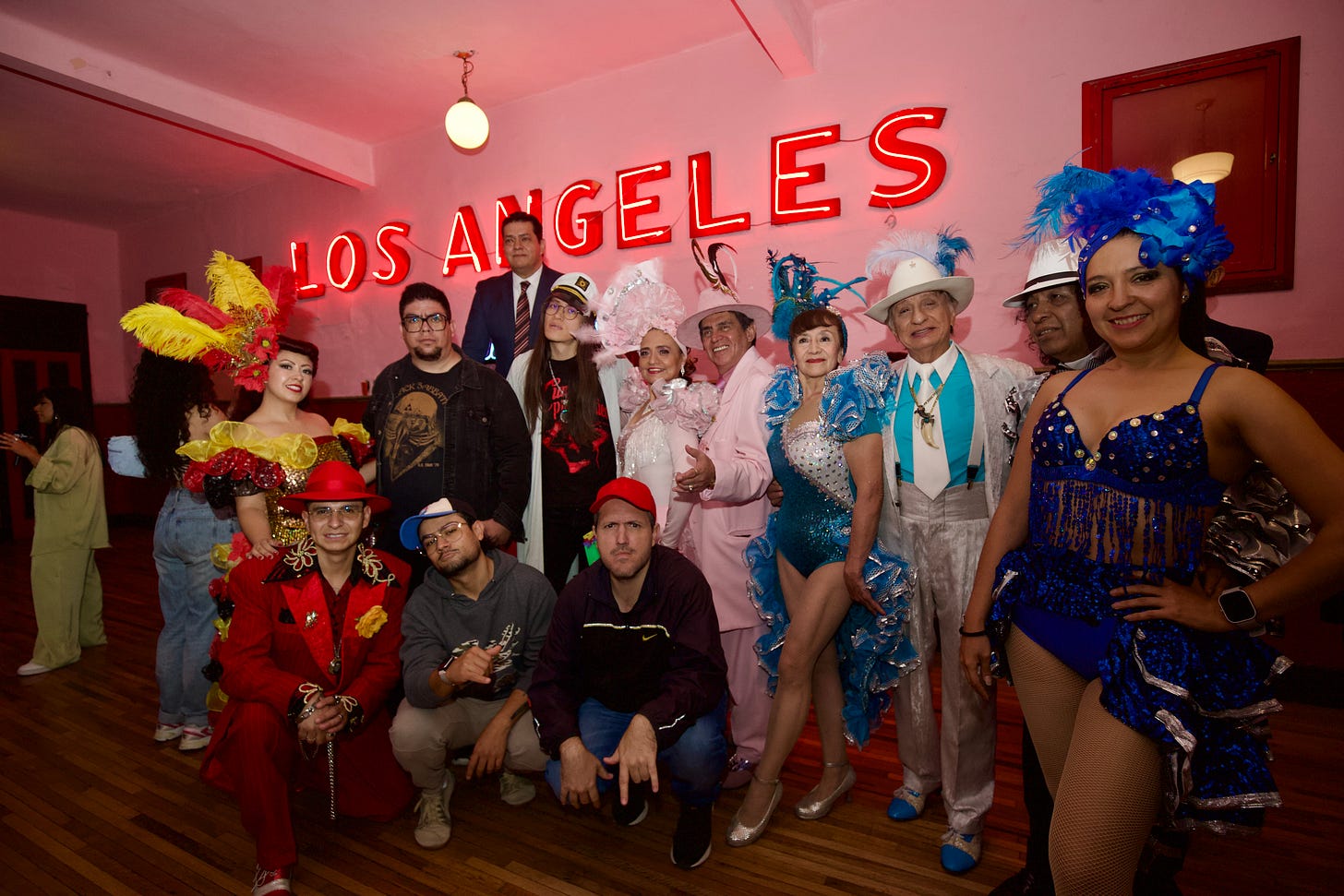25 July 25 | Who Benefits from Free Trade?
Also in this edition: Graciela Iturbide’s innovative vision. Red card to gender violence in soccer. Living archaeology. Without migrants, Mexico’s southern border suffers.
Lea La Jornada Internacional en español aquí.
515 U.S. Multinationals Gain the Most from the USMCA
U.S. President Donald Trump’s decision to use tariffs and bilateral trade agreements to pressure foreign governments is provoking some countries and social movements in the Global South to reevaluate the real benefits of decades of free trade with the United States — and whether agreements like the USMCA are worth renewing.
Global uncertainty, worsened by the new U.S. trade policies, is expected to hit Mexico the hardest because the country sends over 80% of its exports to the U.S. But the rest of Latin America will also feel the effects, warns José Manuel Salazar-Xirinachs, executive secretary of the Economic Commission for Latin America and the Caribbean (ECLAC). Trump’s handling of trade has already triggered renewed criticism of the dollar’s dominance in the global economy, reports Emir Sader. In Brazil, President Lula has called for actions to reduce dependence on the U.S. dollar in international trade.
The first consequences of the U.S. trade policies are already being seen in Mexico, just six months into Trump’s new term. Mexico’s central bank reports that agricultural and food exports fell by 3.2% year over year, amid the climate of uncertainty created by Washington’s policies. Still, President Claudia Sheinbaum Pardo insists the USMCA remains essential and its scheduled review will begin in September.
Others caution that the renegotiation must be assessed based on outcomes and on who is actually benefiting. “Our commercial dependence on the U.S. — with over 85% of exports going there — makes us very vulnerable. This relationship can be used to pressure us around other U.S. policy agendas,” warns Óscar León, a professor at the National Autonomous University of Mexico (UNAM).
In an interview with La Jornada, León says, “The big question is whether we want to keep going under this pressure, because this isn’t just a review — it’s a full renegotiation — and the pressure will continue throughout Trump’s term.” He adds, “President Claudia Sheinbaum needs to seriously consider who the real winners of the past 35 years of this agreement have been.”
According to León, the beneficiaries haven’t been Mexican companies — certainly not micro, small, or even medium businesses, which make up 99% of the country’s firms. Instead, the main winners are large transnational corporations, mostly American. Just 515 large companies account for 75% of Mexico’s exports, which means, he says, "We can’t really call them Mexican exports."
In fact, Trump’s re-election has prompted much-needed scrutiny of the last 30 years of free trade and the economic relationship with the U.S. José Romero, director of CIDE (a Mexican public research center), remarked on Trump’s return to the White House: “After more than three decades of NAFTA and now the USMCA, the current model has shown its limits in achieving truly equitable development. Problems like mass migration, drug trafficking, regional inequality, and economic dependence point to the need for structural change.” Columnist Carlos Fernández Vega calls both NAFTA and the USMCA "the same animal," benefitting only a select few in Mexico.
This reevaluation should also involve public debate in all three countries. Manuel Pérez Rocha has written extensively about the social impacts of what he sees as a trilateral agreement designed mainly for investors. He believes the crisis in the current model is an opportunity to shift course, calling for tri-national solidarity to develop an alternative based on fair trade and democratic principles.
It’s worth remembering that Mexico’s current president was a student activist 30 years ago, part of the global justice movement that opposed NAFTA and called for fair trade. Or as La Jornada’s "Rayuela" column quipped back in March: “What’s truly incredible is that now we’re defending the USMCA.”
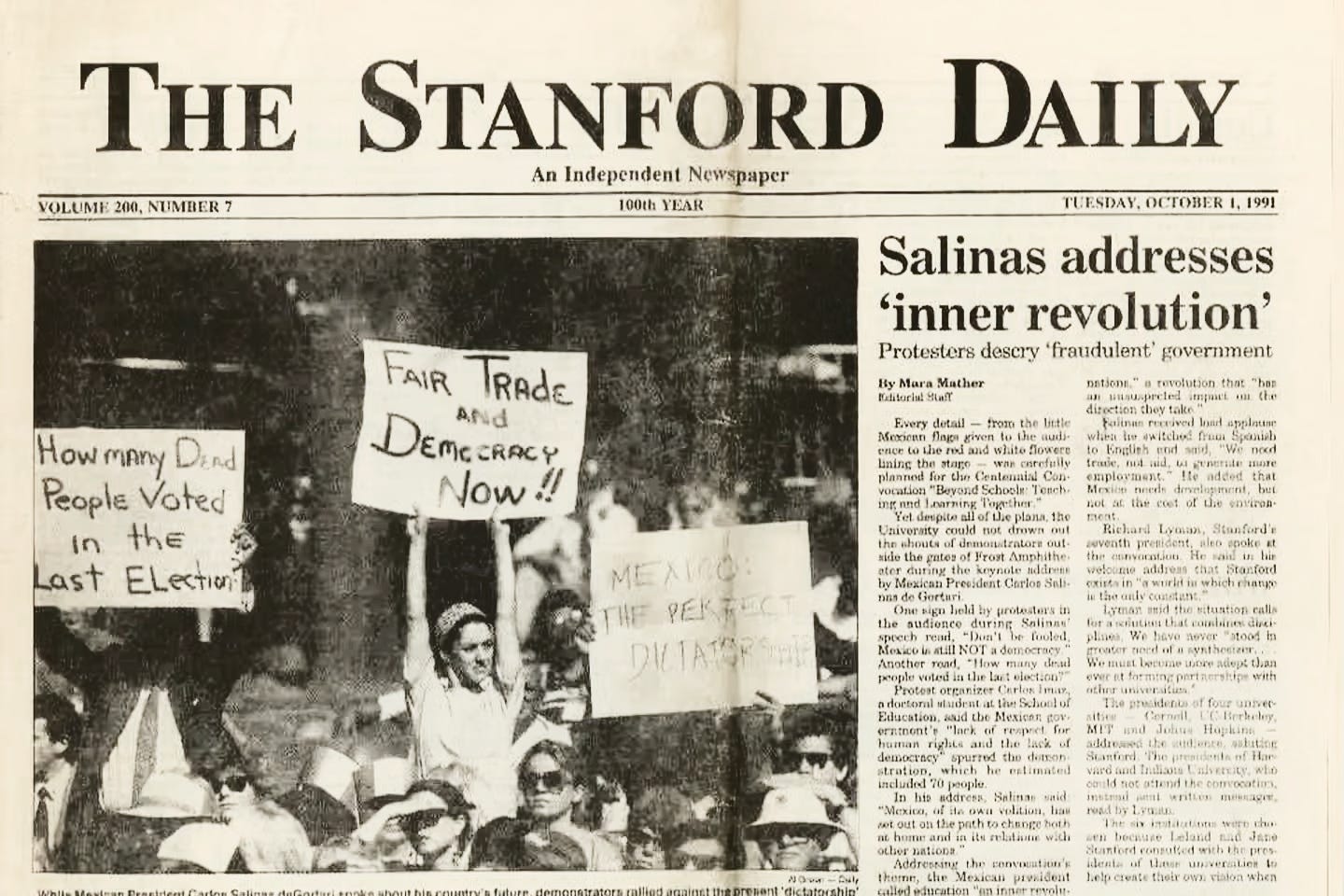
The Quote:
ALCA, ALCA, al carajo.
-Hugo Chávez. Mar de la Plata, 2005, declaring the end of the hemispheric neoliberal free trade project.
In Case You Missed It
◻️ The innovative vision of Graciela Iturbide. In an interview, the photographer shares how she is preparing to travel to Spain to receive the 2025 Princess of Asturias Award for the Arts — a recognition of her groundbreaking perspective and extraordinary artistic depth, built over five decades. “She’s a worthy successor to Don Quixote,” says José Cueli.
◻️ Red card to gender violence in soccer. Gender-based violence in Mexican football is so normalized that any woman involved is at risk. A recent survey shows 78% of women have experienced sexual violence linked to soccer. This week, the UN Development Programme (UNDP) issued an urgent call for clubs and authorities to address and prevent these abuses.
◻️ Finabien to offer 100,000 cards for sending remittances from the U.S. Ahead of a planned 1% U.S. tax on remittances (set for January 2026), Mexico’s Financiera para el Bienestar is aiming to distribute at least 100,000 cards to migrants to help them send money back to relatives in Mexico at lower costs. When Republican Senator Eric Schmitt accused President Sheinbaum of helping migrants "evade" the tax, Mexico’s U.S. ambassador Esteban Moctezuma responded that using regulated financial institutions for remittances brings real economic and security benefits.
◻️ Growing movement to defend migrants. In response to Trump’s harsh immigration policies, Catholic clergy, labor unions, attorneys general from 20 U.S. states, and many others are mobilizing to defend migrants. In Mexico, protests have also erupted over raids and cruelty, and the President is demanding the return of 14 Mexicans jailed in what’s been dubbed “Alligator Alcatraz.” She also reiterated her rejection of the border wall, saying a safer northern border has been achieved without it. ▶️ VIDEO: “Mutual Embrace” mural inaugurated in Tijuana.
◻️ Without migrants, Mexico’s southern border struggles. U.S. immigration crackdowns have led to a sharp drop in migration through southern Mexico, impacting local economies. Service, tourism, and informal labor sectors — like ferrying migrants across the Suchiate River — have all suffered.
◻️ Living archaeology. Legendary Mexican archaeologist Jorge Angulo Villaseñor, known for his work on Teotihuacan, Xochicalco, and the Templo Mayor, was celebrated by students and colleagues on his 100th birthday. Diego Prieto, former director of Mexico’s INAH (National Institute of Anthropology and History), now leading the Strategic Unit for Living Cultures, added: “The state doesn’t impose culture — it supports its emergence from the communities.”
◻️ Celebrating 88 years of Salón Los Ángeles: This legendary Mexico City venue is“a cultural place of cultural resistance of dance and tradition,” bringing together generations of musicians and dancers. “We’re the birthplace of danzón, pachucos, and rumberas,” says owner Miguel Nieto.
◻️ Pagan Poem, by Yannick Cormier. A photographic series capturing humanity’s deep physical and psychological connections with all living beings across Africa, Europe, Asia, and the Americas — revealing “collective identities,” reports Ojarasca
🎥 What We’re Watching
Actor George Takei, known for his role on Star Trek, says his book They Called Us Enemy — about his childhood in U.S. internment camps for Japanese Americans during WWII — has been banned again.



